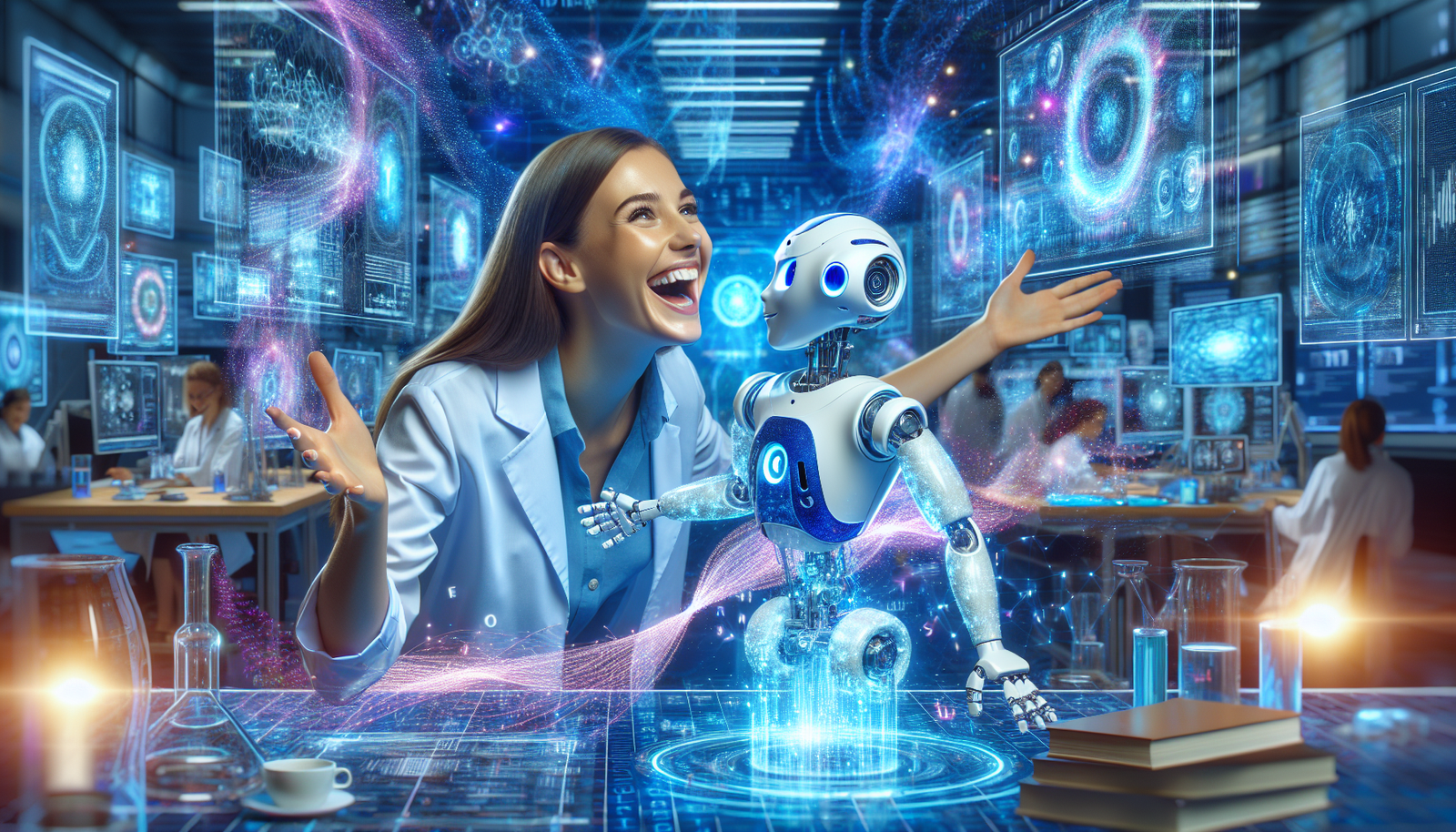Artificial intelligence is revolutionizing scientific research, leading to rapid advancements. This unexpected catalyst transforms complex processes into *unprecedented opportunities*. Researchers are discovering innovative solutions, alleviating traditional challenges. Thanks to AI, large data sets are quickly decoded, accelerating discoveries. *The impact of this technology reaches new heights* in various disciplines. When used wisely, artificial intelligence proves to be a *valuable ally for humanity*. The implications for health, the environment, and technology are shaping the future horizons of scientific research.
Artificial Intelligence as a Research Engine
The integration of artificial intelligence into research processes is beginning to transform the scientific landscape. Sophisticated data infrastructures allow AI to analyze enormous amounts of information at unmatched speeds. With this asset, innovative discoveries are emerging in various fields, ranging from medicine to engineering.
Diverse Applications in the Sciences
Different sectors are benefiting from AI to optimize research protocols. Biotechnology, for example, uses predictive models to refine drug discovery. Indeed, AI has proven capable of identifying therapeutic targets with remarkable precision. Collaborations between researchers and algorithms in the analysis of clinical data generate promising results for the treatment of complex diseases.
Influence on Experimental Methodologies
The methods adopted by scientists are also undergoing significant evolution. The introduction of AI as a tool for analysis changes the way experiments are designed and conducted. For example, advanced simulations of biological systems allow for anticipating molecular interactions. This dynamic fosters the emergence of more precise hypotheses, initially tested by researchers, thus enriching the research cycle.
Human Resources and Creativity
Another fascinating dimension of AI is its impact on creativity within research teams. Generative AI, in particular, allows for generating new ideas and concepts. With this tool, researchers collaborate with machines to develop bold projects, resulting from a synergy between humans and algorithms. Thus, human creativity is enriched by the analytical capabilities of AI systems.
Ethical Challenges and Regulation
This technological excitement raises important ethical questions. The regulation of AI tools remains a sensitive topic, with organizations like the CNIL advocating for a responsible adoption of technologies. Researchers must navigate a complex environment where data protection and ethical implications are paramount. For detailed reflections, see the CNIL’s recommendations on data protection and innovation.
Acknowledgment and Awards
Advances in artificial intelligence are gaining global momentum. The Nobel Prizes ceremony in 2023 honored pioneers in recognition of their contributions to AI research. These distinctions highlight a sustained commitment to research that transforms various spheres. The recognition of AI experts by the scientific community is a strong signal of the revolutionary potential of this technology. To learn more about these laureates, explore the portraits of the pioneers of artificial intelligence research.
The Future of AI and Research
The powerful duo of AI and scientific research promises radical transformations. Innovations continue to unfold, and the advent of AI assistants like those developed by Meta and other entities offers new perspectives. These tools are gradually integrating into research laboratories, making processes more efficient. Meta has even launched its AI assistant internationally, highlighting the enthusiasm for these technologies.
Conclusion on the Impact of AI in the Scientific Field
Now, artificial intelligence emerges as an essential player in modern research. The acceleration of discoveries and the optimization of processes represent a significant advancement for the entire scientific community. Looking ahead, AI promises to open even more avenues for exploration, with significant implications for our understanding of the world and human health. The challenges of 2024 are set to put AI in the spotlight, particularly with recent developments in the field, such as the Nobel Prize in Chemistry, where AI is again being highlighted.
Frequently Asked Questions About Artificial Intelligence in Scientific Research
How does artificial intelligence accelerate scientific discoveries?
Artificial intelligence can analyze massive volumes of data at unprecedented speeds, enabling researchers to identify patterns, formulate hypotheses, and accelerate experimentation processes by reducing the time required to obtain significant results.
What types of research benefit most from artificial intelligence?
Many fields, including biology, chemistry, physics, and social sciences, benefit from AI technologies. For instance, in the medical sector, AI aids in drug discovery and genomic data analysis.
What are the challenges associated with using artificial intelligence in research?
Challenges include data quality, algorithm complexity, and the need for researchers to have a deep understanding of AI to avoid misinterpretations of results.
Do researchers need specific training to use artificial intelligence?
While training in data science and statistics is beneficial, there are user-friendly AI tools that even researchers without advanced technical skills can use effectively.
How does AI contribute to interdisciplinary collaboration in research?
AI facilitates data sharing and analysis across disciplines, allowing researchers from different specialties to collaborate more easily on complex projects that integrate multiple fields of expertise.
What notable advancements have been made in scientific research through the use of AI recently?
Advancements include the development of new medical treatments, discoveries related to climate and environment, as well as significant progress in developing innovative materials through AI-assisted simulation and optimization.
How can artificial intelligence transform data collection in research?
AI can automate data collection from various sources, improving accuracy and efficiency, and allowing for richer and more diverse data sets, essential for in-depth analyses.
What AI tools are recommended for researchers?
Tools like TensorFlow, PyTorch, and scikit-learn are often used for machine learning, while specialized platforms like IBM Watson and Google AI offer solutions tailored to specific research needs.
Can artificial intelligence replace researchers in scientific research?
No, AI is designed to complement and support researchers’ work, not to replace it. It helps process complex data, but human judgment, creativity, and ethics remain essential in research.






